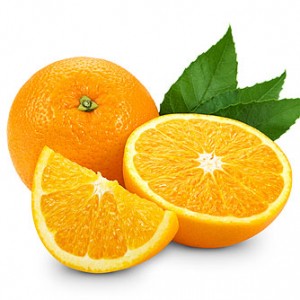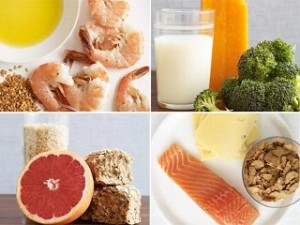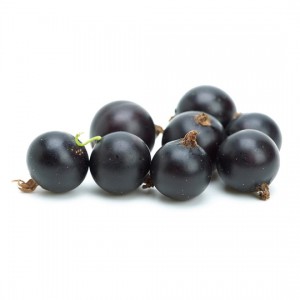Certain foods that may help to ease inflammation associated with osteoarthritis
Vitamin C
The antioxidant vitamin C is necessary for cartilage development. A lack of vitamin C can lead to weakened cartilage and increase osteoarthritis symptoms.
Include these items in your shopping cart:
- tropical fruits like papaya, guava, and pineapple
- citrus like oranges and grapefruit
- cantaloupe
- strawberries
- kiwi
- raspberries
- cruciferous vegetables like cauliflower, broccoli, and kale
- bell peppers
- tomatoes
Vitamin D
Research is mixed about vitamin D, but some studies in Arthritis and Rheumatism show that vitamin D can help prevent the breakdown of cartilage, and decrease the risk of joint space narrowing.
Enjoy these vitamin D-rich foods:
- seafood like wild-caught salmon, cod, sardines, and shrimp
- fortified milk
- eggs
- Look for other Vitamin D (and calcium) fortified foods such as orange juice, breakfast cereals, tofu, and yogurt.
Beta-carotene
Beta-carotene is another powerful antioxidant that helps destroy free radicals before they can cause excessive damage to joints. Beta-carotene is easy to identify because it gives fruits and vegetables, such as carrots, their bright orange colour. Other excellent sources include:
- cruciferous veggies like kale, Brussels sprouts, broccoli, collard greens, mustard greens, and chard
- sweet potatoes
- winter squash
- cantaloupe
- greens like Romaine lettuce and spinach
- parsley
- apricots
- peppermint leaves
- tomatoes
- asparagusThe healthiest fats for people with osteoarthritis (or other inflammatory disorders) are omega-3 fatty acids. While some foods increase levels of inflammation in the body, omega-3 actually works to decrease inflammation by suppressing the production of cytokines and enzymes that breakdown cartilage.
- Foods with the highest amount of omega-3 fatty acids are:
- Omega-3 Fatty Acids
- salmon (wild, fresh or canned)
- herring
- mackerel (not king)
- sardines
- anchovies
- rainbow trout
- Pacific oysters
- omega-3-fortified eggs
- flaxseed
- walnutsBioflavonoids such quercetin and anthocyanidins are both forms of antioxidants. The anti-inflammatory effects of quercetin may be similar to those of nonsteroidal anti-inflammatory medications (such as aspirin and ibuprofen). Good sources of quercetin include:
- Bioflavonoids
- onions (red, yellow, white)

- kale
- leeks
- cherry tomatoes
- broccoli
- blueberries
- black currants
- cocoa powder
- green tea
- apricots
- apples (with skin)
Spices
- Some spices have anti-inflammatory effects, too. Among the most promising are ginger and turmeric. Grate fresh ginger into stir fries, add to salad dressings, sip ginger tea, and add to high-fibre, low-fat muffins.
- Turmeric is a mustard-yellow spice from Asia that’s the main ingredient in yellow curry. Scientific studies cited in the Journal of Natural Products have shown that turmeric may help arthritis by suppressing inflammatory body chemicals
It’s clear that the best strategy for keeping osteoarthritis symptoms at bay is to lose weight if you’re overweight, colour your plate with fruits and vegetables, enjoy fish, nuts, and healthy oils, and keep your body in motion.

